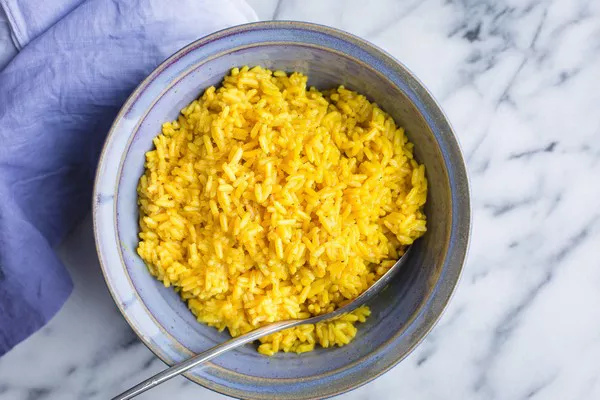Diabetes is a chronic condition that affects millions of people worldwide. It requires careful management of blood sugar levels through diet and lifestyle choices. One such diet option that has gained attention for its potential benefits in managing diabetes is yellow rice. This article explores the nutritional qualities of yellow rice, its impact on blood sugar levels, and its role in a diabetes-friendly diet.
1. Understanding Yellow Rice:
Yellow rice, also known as saffron rice or turmeric rice, is a staple in many cuisines across the globe. It gets its vibrant yellow color from the addition of spices like turmeric or saffron during the cooking process. The primary ingredient in yellow rice is white rice, which undergoes a transformation with the inclusion of these spices.
2. Nutritional Profile of Yellow Rice:
Yellow rice offers several essential nutrients that can contribute to a well-rounded diet for individuals with diabetes. White rice is a good source of carbohydrates, providing energy for the body. It also contains small amounts of protein and dietary fiber. Additionally, turmeric, a key spice in yellow rice, contains curcumin, a compound known for its anti-inflammatory properties.
3. Glycemic Index and Yellow Rice:
The glycemic index (GI) is a measure of how quickly foods raise blood sugar levels. Foods with a high GI may cause a rapid spike in blood glucose levels, which is not ideal for individuals with diabetes. However, the GI of yellow rice can vary depending on factors like the type of rice used and the cooking method. Generally, long-grain rice tends to have a lower GI compared to short-grain rice.
4. Role of Spices in Managing Blood Sugar:
The inclusion of spices like turmeric in yellow rice can offer potential benefits in managing blood sugar levels. Curcumin, the active compound in turmeric, has been studied for its potential anti-diabetic properties. It may help improve insulin sensitivity, reduce insulin resistance, and lower blood sugar levels.
5. Fiber Content and Glycemic Control:
Dietary fiber plays a crucial role in maintaining stable blood sugar levels. While white rice is not particularly high in fiber, incorporating other high-fiber ingredients alongside yellow rice can enhance its nutritional value. For instance, pairing yellow rice with vegetables like broccoli or beans can increase the overall fiber content of the meal, aiding in better glycemic control.
6. Portion Control and Moderation:
Despite its potential benefits, it is essential to remember that moderation is key when including yellow rice in a diabetes-friendly diet. Rice, including yellow rice, is a carbohydrate-rich food, and portion control is crucial to prevent excessive carbohydrate intake. Balancing the amount of yellow rice consumed with other low-carbohydrate foods, such as lean proteins and non-starchy vegetables, can help maintain stable blood sugar levels.
7. Incorporating Yellow Rice into a Diabetes-Friendly Diet:
When including yellow rice in a diabetes-friendly meal plan, it is important to consider the overall composition of the meal. Opt for smaller portions of yellow rice and pair it with a variety of colorful vegetables and lean proteins. This combination provides a more balanced and nutrient-rich meal while minimizing the impact on blood sugar levels.
8. Other Considerations:
Individuals with diabetes should consult with their healthcare provider or a registered dietitian before making any significant changes to their diet. Factors such as personal health goals, medication use, and individual response to different foods can influence dietary recommendations.
Conclusion:
While yellow rice can be a flavorful addition to a diabetes-friendly diet, it should be consumed in moderation and as part of a well-balanced meal. Its nutritional profile, combined with the potential anti-inflammatory and blood sugar-regulating properties of turmeric, make it an interesting option for individuals with diabetes. However, personalized dietary recommendations should always be sought from healthcare professionals to ensure optimal diabetes management and overall health.

